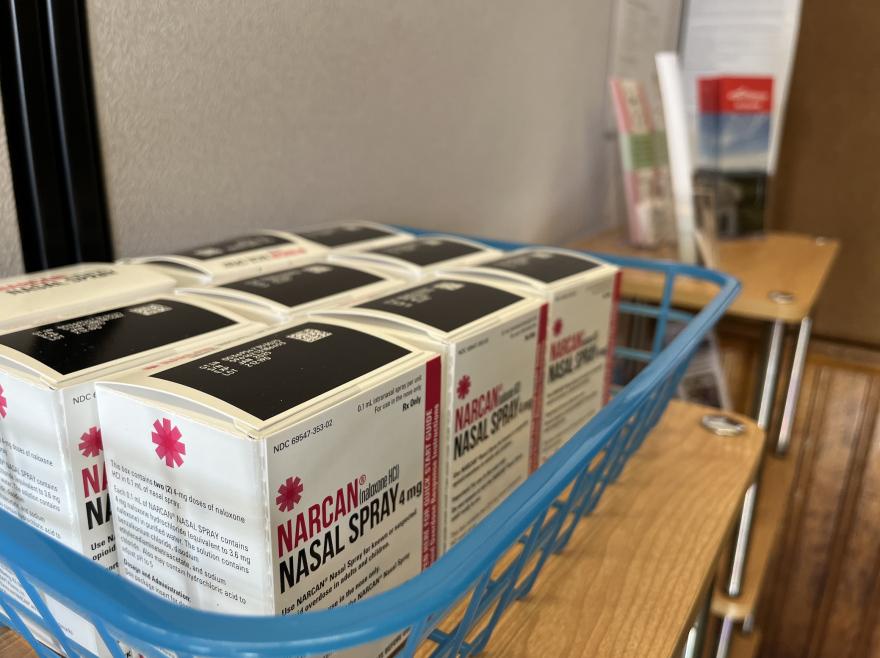New Hampshire plans to target its first round of opioid settlement money toward harm reduction services, youth prevention efforts, peer recovery supports and residential treatment and housing, among other programs.
The money is part of the tens of millions of dollars the state has received in legal settlements with companies accused of fueling the opioid crisis.
State officials have proposed $6.5 million in grants to 16 nonprofits, health care organizations and county governments to support a range of efforts to treat and prevent substance use in New Hampshire, at a time when overdose deaths have been rising. At least 480 people died due to overdoses last year — the most in the state since 2017.
The contracts — which go before the Executive Council for approval Wednesday — are based on recommendations from the state’s Opioid Abatement Advisory Commission. The panel, which the Legislature created to oversee the settlement funds, includes lawmakers, local officials and people who work in public health, addiction treatment, law enforcement and corrections.
The New Hampshire Harm Reduction Coalition is in line to receive the largest grant, $875,000, to expand harm reduction services in communities across the state.
Another $800,000 would help Manchester-based Dismas Home grow its residential treatment and transitional housing program for formerly incarcerated women. The organization’s executive director, Cheryll Andrews, said they hope to expand from eight to 24 beds.
“If we can build this really strong support network for these women, they have a really strong shot,” Andrews said. “They have a really great shot at being successful long term on the outside after.”
Multiple organizations working to prevent substance misuse among youth are also in line for funding. One is The Upper Room, a family resource center in Derry slated to receive $264,000. It plans to expand its youth-focused programs, including support for students during out-of-school suspensions, anger management classes and substance misuse education.
Intervening early to help struggling teens can prevent the harms that would come from years of misusing substances, said Executive Director Brenda Guggisberg.
“You're able to help people live a life differently,” she said.
The money would also support a range of other programs, including efforts to:
- Expand peer recovery support services, including for people involved in the criminal justice system;
- Bolster New Hampshire’s behavioral health workforce;
- Provide rides to substance-use treatment and other recovery-related supports;
- Offer transitional or recovery housing, including for pregnant and postpartum women;
- Make it easier for people with substance use disorders to connect with treatment, housing and other basic services.
The funding comes from a wave of lawsuits against companies that made, sold or distributed opioid painkillers. New Hampshire and other states, along with thousands of local and tribal governments, have accused those companies of sparking an opioid-addiction crisis that has claimed hundreds of thousands of lives in the U.S.
State officials estimate those settlements will generate more than $300 million for New Hampshire over the next two decades, of which the state has already received more than $40 million. All of that money must be used, in one way or another, to address drug addiction.
Members of the Opioid Abatement Advisory Commission have said they will make additional rounds of funding available once the first grants are approved.
Separately, about two dozen towns, cities and counties are receiving a share of the settlement funds directly. More than $6 million has already gone to those communities, which filed their own lawsuits against drug companies.








